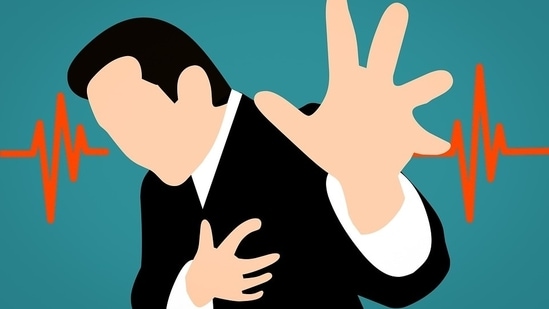Cardiovascular
Why are heart attacks becoming more common on Mondays?
While the causes of heart attacks are multifactorial, fatal heart attacks appear to be more common on Mondays. Health experts reveal what could be the cause
A recent report by the British Heart Foundation (BHF) stated that heart attacks are more likely on Mondays than at any other time and also referred to as the ‘Blue Monday’ phenomenon, the odds of having a cardiac episode are 13 per cent higher on Monday than on other days of the week. Further, the most likely time for a cardiovascular issue is early morning, between 6 am and 10 am; mainly because Cortisol and other hormones in the blood rise as a person wakes up.
According to health experts, when a person is under stress, these hormone levels impact the circadian rhythm, all of which can cause heart attacks or cardiovascular issues. In today’s day and time, heart attacks have become a severe health concern affecting millions of people, especially youngsters worldwide but while the causes of heart attacks are multifactorial, recent research has suggested an intriguing pattern—fatal heart attacks appear to be more common on Mondays.
This finding raises questions about the potential reasons behind this weekly spike in cardiovascular events so, what could be the cause of this phenomenon? In an interview with HT Lifestyle, Dr Haresh Mehta, Consultant Interventional Cardiologist at SL Raheja Hospital in Mahim and Dr Prashant Pawar, Consultant-Interventional Cardiologist at Fortis Hiranandani Hospital in Vashi, talked about how stress and Monday Blues are related and shared, “One possible explanation for the increased occurrence of fatal heart attacks on Mondays is the impact of stress. Mondays often begin a new work week, bringing with it a lot of stress and anxiety, especially amongst those associated with professional responsibilities. Research has shown that elevated stress levels can contribute to the development of heart disease and increase the risk of heart attacks. Therefore, through the correlation by cause, it is plausible that the collective stress experienced by individuals returning to work after the weekend contributes to the higher prevalence of fatal heart attacks on Mondays.”
According to them, following could be the causes –
- Disruption of Routine: Weekends often allow people to deviate from their regular routines, including dietary habits, sleep patterns, and exercise regimens. Such deviations, especially when they involve excessive indulgence (especially alcohol) or neglect of health-promoting activities, can harm cardiovascular health. When individuals resume their routines on Mondays, abrupt changes in eating habits or physical activity levels may strain the heart, potentially triggering heart attacks in susceptible individuals.
- Delayed Medical Attention: Another factor that could contribute to the spike in fatal heart attacks on Monday is diverted medical attention. It is common for individuals to dismiss symptoms experienced over the weekend, attributing them to fatigue or stress. Consequently, these symptoms may escalate when Monday arrives, leading to more severe cardiac events. Moreover, the reduced availability of healthcare professionals and medical facilities during weekends might contribute to delayed diagnoses and treatments, further exacerbating the risk.
- Social and Behavioural Factors: The concept of “social jet lag” has gained attention in recent years. It refers to the misalignment between an individual’s biological clock and their social schedule, often experienced when people alter their sleep patterns on weekends compared to week days. This disruption in the sleep-wake cycle may negatively impact cardiovascular health. Irregular sleep patterns, along with changes in alcohol consumption or dietary habits during weekends, can contribute to a higher risk of heart attacks on Mondays.
- The Impact of Monday Morning Rush Hour: For many individuals, Monday mornings are synonymous with rush hour traffic and commuting-related stress. Studies have shown that high traffic congestion and air pollution exposure can increase the risk of cardiovascular events. The combination of traffic-induced stress, air pollution, and physical inactivity during long commutes may contribute to the higher incidence of fatal heart attacks on Mondays.
The health experts concluded, “Although the exact reasons behind the increased occurrence of fatal heart attacks on Mondays are still subject to ongoing research, several plausible explanations have emerged. However, recognizing these potential risk factors can help individuals take proactive steps to prioritize their cardiovascular health. Also, employers and policymakers should consider measures to alleviate stress and promote healthier lifestyle choices at the beginning of the workweek. Ultimately, further studies are needed to unravel the complex relationship between week days, anxiety, and fatal heart attacks, enabling the development of targeted interventions to reduce these risks.”

